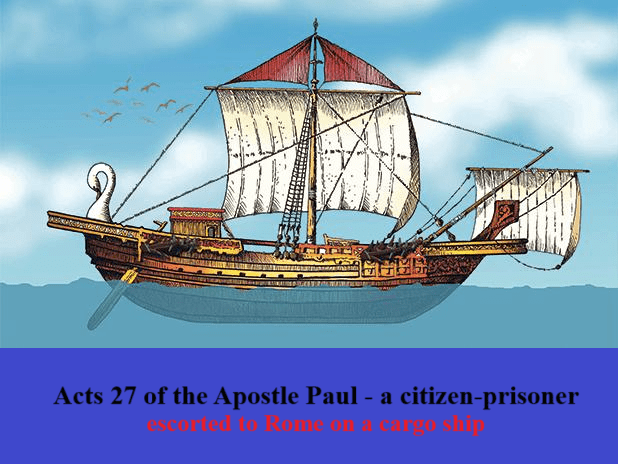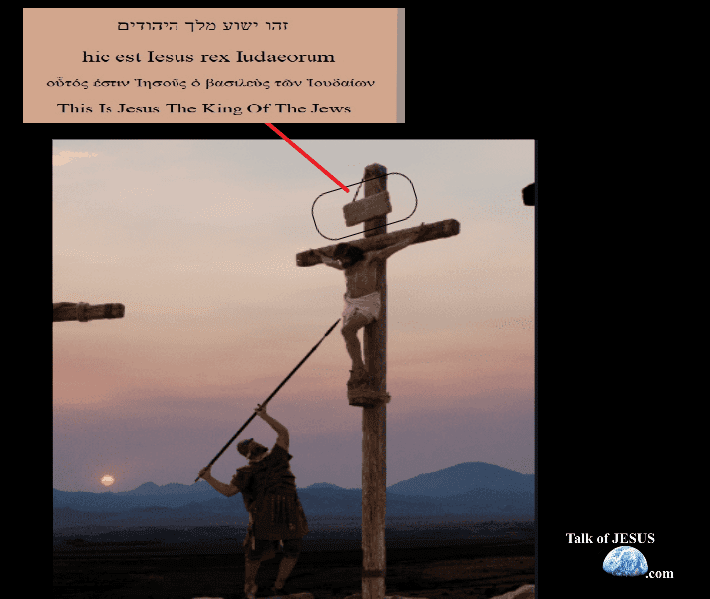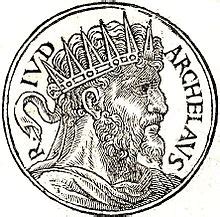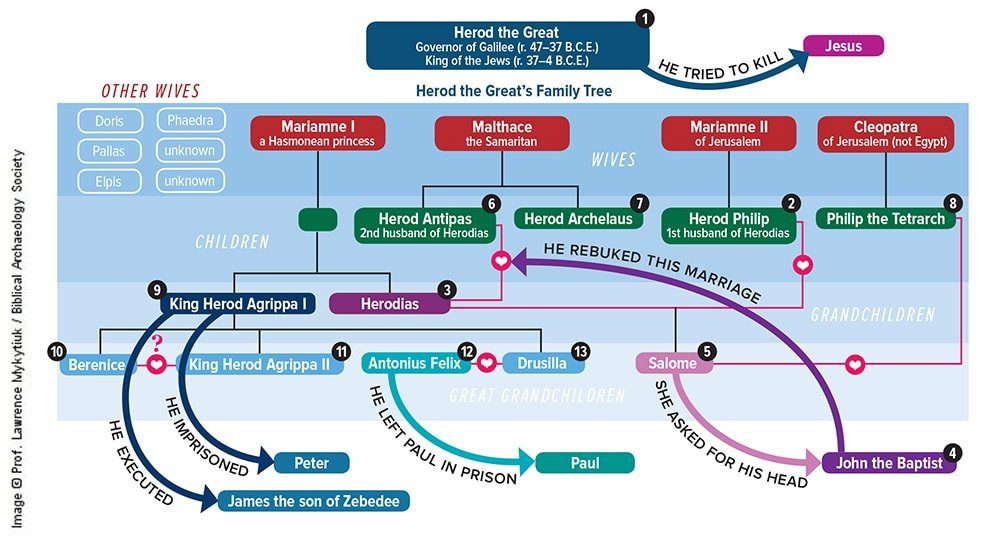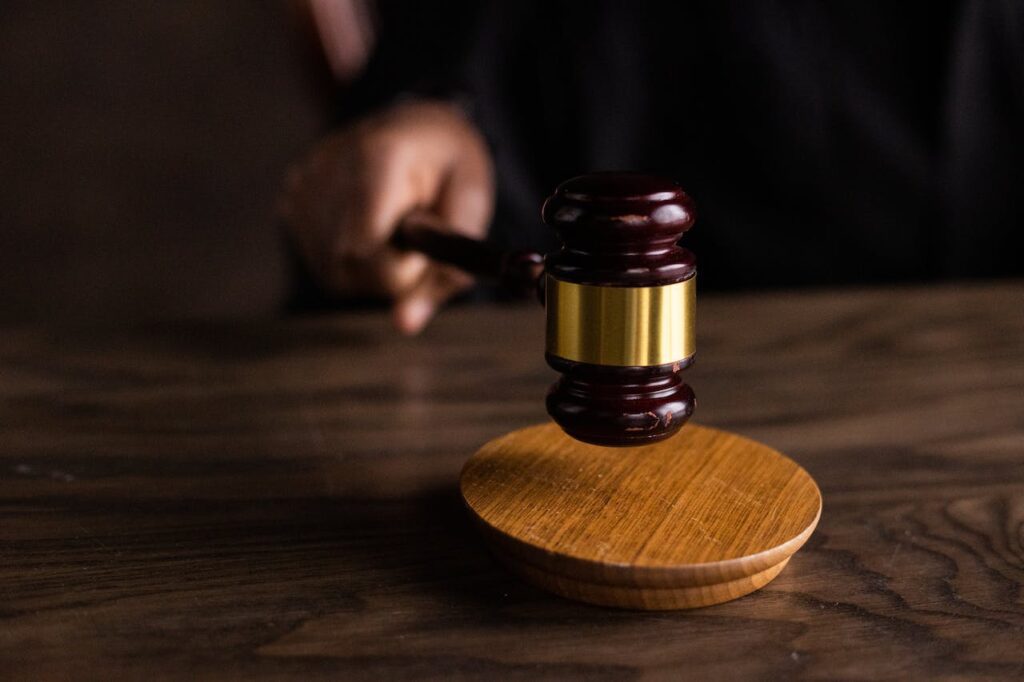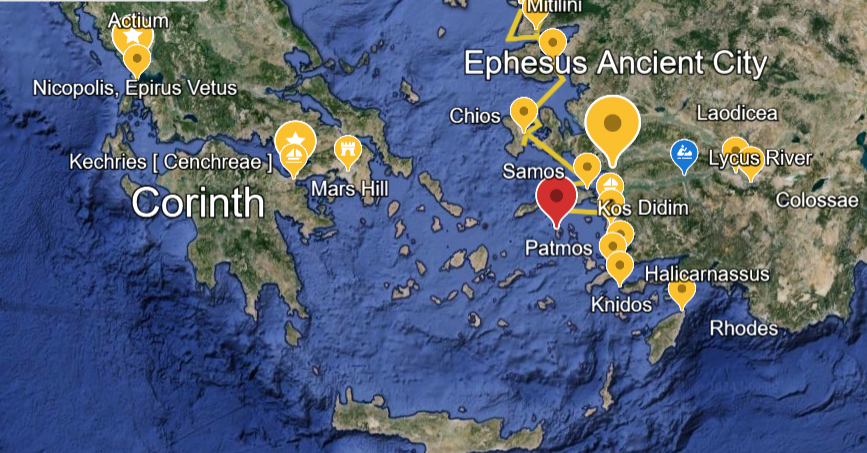The Apostle Paul, a Jew among Jews commissioned by Christ to go into all the world of the gentiles — after taking the Gospel to the Greeks since A.D. 47 — is now a prisoner sent to Rome.
In the year of our Lord 59:
Roman Prisoners (Chattel of Caesar)
Make no mistake about it: ROME rules the world! Their ships have captured it since the days of Julius Caesar and although Judea claims a King, Jerusalem is no exception to Rome’s rule.
Paul – a citizen under Roman rule
In Paul’s lifetime thus far Caesar Augustus had been Emperor when he was a boy in Cilicia;Tiberius during his years studying under Gamaliel in Jerusalem and when Jesus was crucified and up until the day Christ appeared to Saul near Damascus.
Paul had begun preaching the Gospel to the gentiles near the end of the reign of Caligua, who had declared himself a god in A.D. 37.
The Emperor Claudius had made Judea a province of Rome after the death of Herod Agrippa I in A.D. 44, ruling the empire during many martyrdoms of several saints and some Apostle’s during the time of Paul’s missionary journeys.
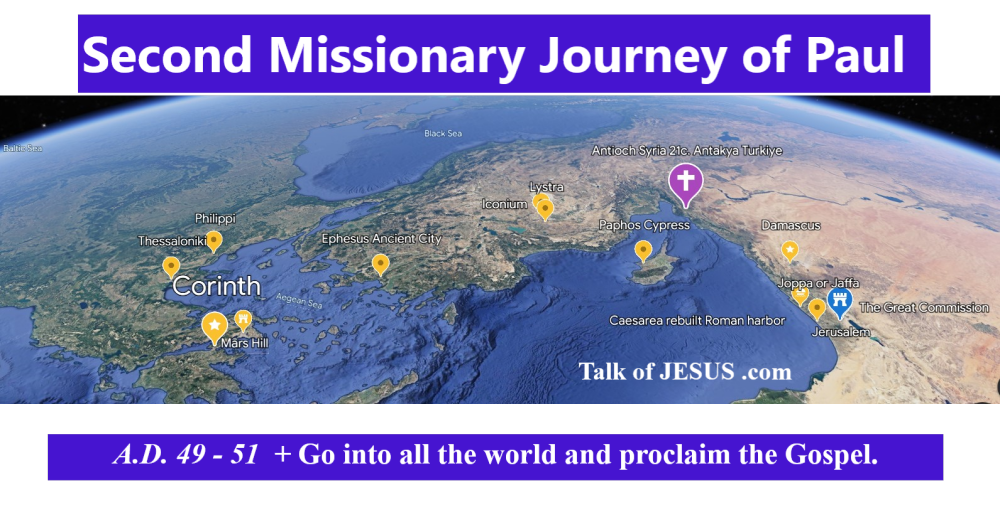
In the civil administration, many measures demonstrate Claudius’s enlightened policy. He improved in detail the judicial system, and, in his dealings with the provinces, he favoured a moderate extension of Roman citizenship by individual and collective grants..
.. during a period of troubles Claudius expelled the Jews from Rome for a short time; Christians may have been involved. Elsewhere he confirmed existing Jewish rights and privileges, and in Alexandria he tried to protect the Jews without provoking Egyptian nationalism.
Source: Britannica
Claudius had ruled Rome and the world up until just five years ago, but Paul’s appeal is to a new Caesar.
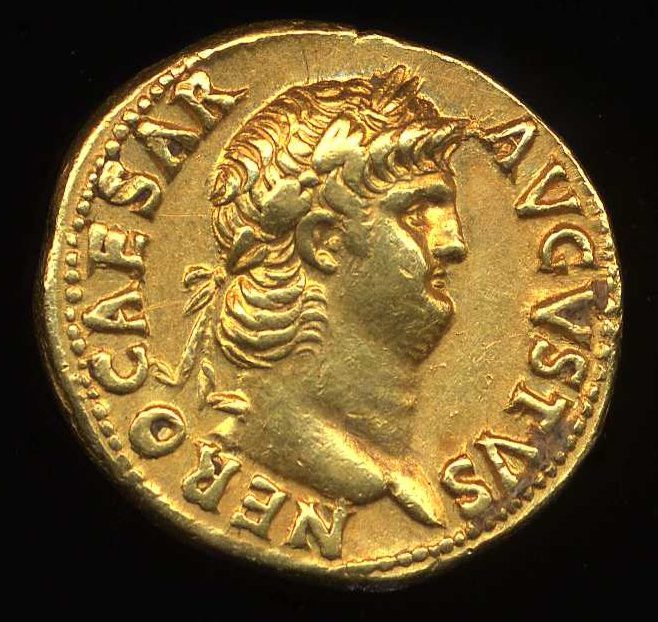
Nero Claudius Caesar Augustus Germanicus
Up to the year 59, Nero’s biographers cite only acts of generosity and clemency on his account. His government forbade contests in the circus involving bloodshed, banned capital punishment, reduced taxes, and accorded permission to slaves to bring civil complaints against unjust masters.
Source: Britannica
The Apostle Paul is about 54 years old now. He is a Roman citizen of Tarsus, Cilicia who would have been set free by the Roman Governor (with approval of the Judean King) had the Apostle not earlier appealed to Caesar — the 22 year old Nero now ruling Rome under his mother’s tutelage.
Acts 27:
Now when it was decided that we would sail for Italy, they proceeded to deliver Paul and some other prisoners to a centurion of the Augustan cohort named Julius.
And getting aboard an Adramyttian ship, which was about to sail to the regions along the coast of Asia, we set sail accompanied by Aristarchus, a Macedonian of Thessalonica.
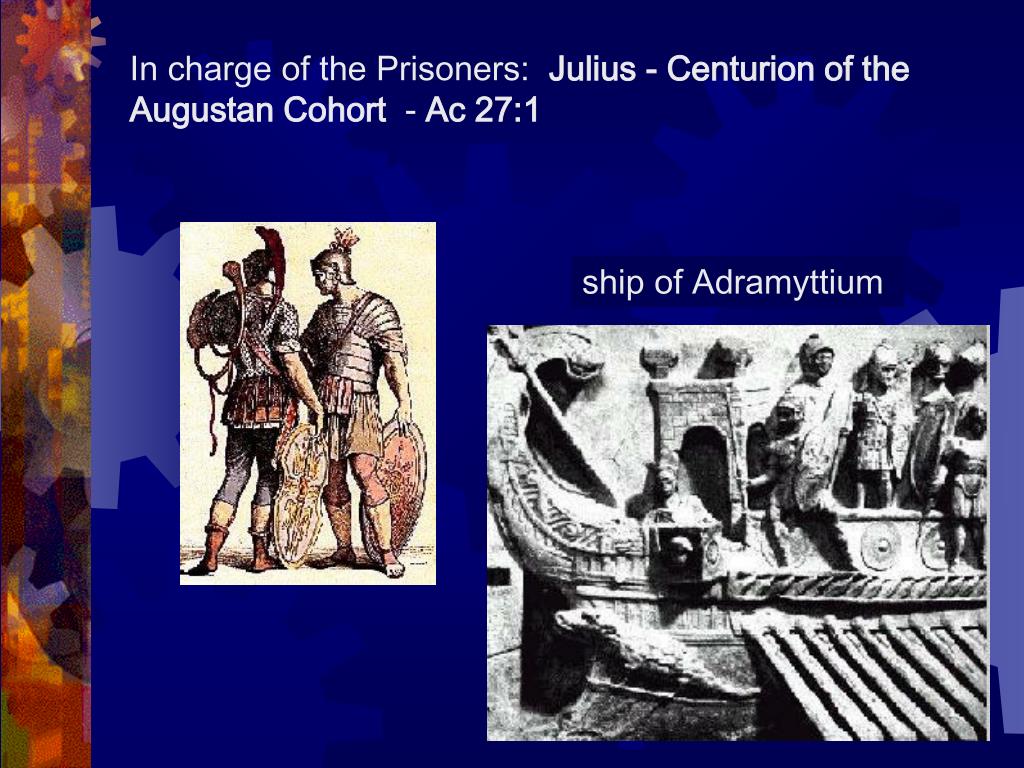
Doctor Luke, the historian recording the Acts of the Apostles, tells us a few details of Paul's journey to Rome as a prisoner.
We will proceed on this 2200 mile [3500 km] voyage taking into account the perspective of Iulius [Julius], Paul’s Roman Centurio Augustus’ responsible for all prisoners of Caesar Nero.
The Writ of Porcius Festus
Before sailing to Rome, the Centurion representative of Caesar —Julius would have been given an official writ of Paul’s court proceedings and judgment.
Porteus Festus may have given written instructions and verbal administrative recommendations as the current Governor of Judea transferring this prisoner Paul into the direct jurisdiction of Nero.
Julius probably would not have known that Paul had been rescued from the Jews two years ago by Judea’s former governor. Antonius Felix, you may remember, had left Paul in prison in Caesarea for two years after another Centurion had rescued the Apostle from an assassination plot of the Jews.
Paul is a Jew (as one might expect of a resident of Judea). But the Governor would want this Centurion Julius to know that his prisoner being sent to Nero is a Roman citizen acquited of the Jewish charges.
BUT, Paul had appealed to Caesar and could not be released until the Emperor agreed to hear or dismiss Paul’s case.
Roman roads and shipping routes
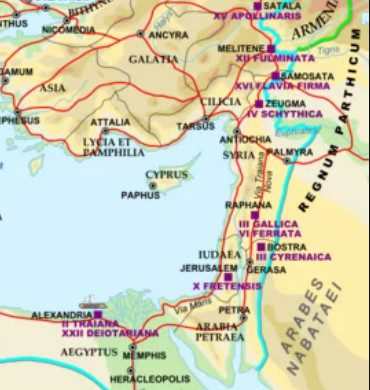
The Centurion Julius would have to plan a route to Rome to deliver his cargo — Paul, a prisoner and Roman citizen. Caesarea Maritime is a port and administrative center of Rome’s eastern army. Like any port ships arrive and depart with cargo and supplies for Rome’s army. Some smaller ships sailed from port to port on what you might call ‘the milk run’ delivering essentials for further transport inland along the extensive Roman roads.
Julius gained passage on such a ship that sailed along the coast, first with a stop in nearby Sidon, with a terminus destination of Myra.
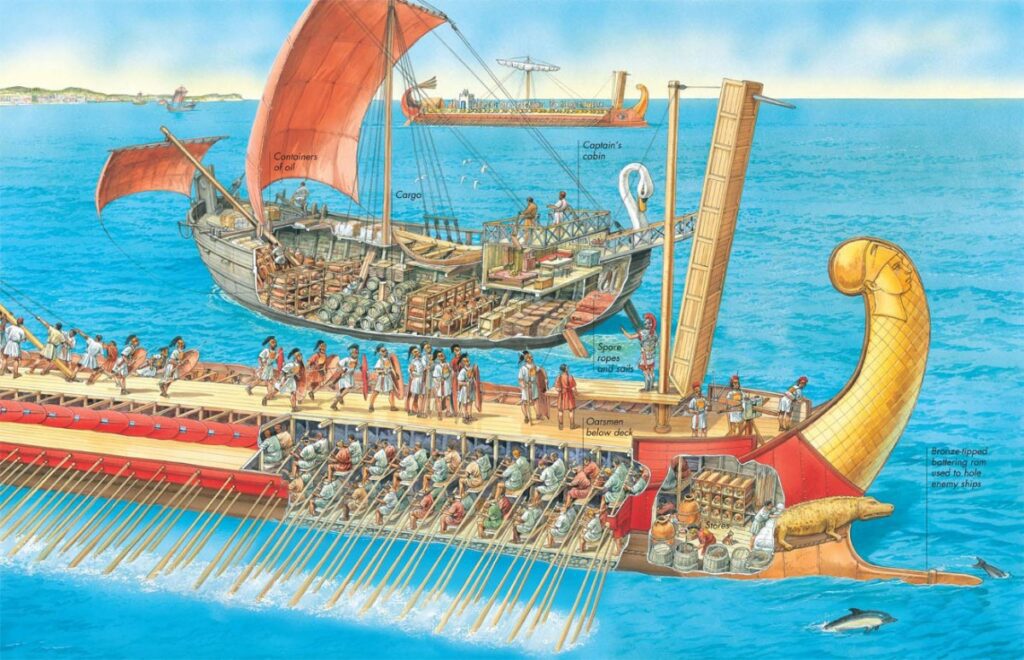
Stop One of a long Voyage
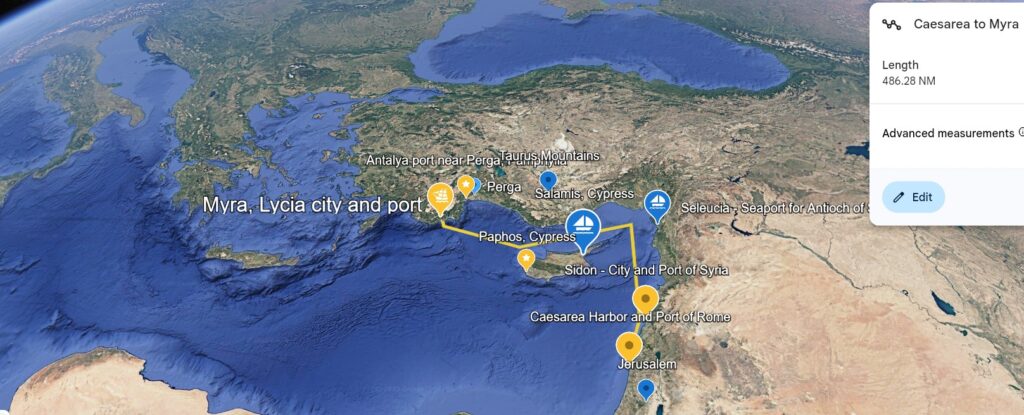
486 Nautical Miles [~ 900 KM or 660 Miles]
.. aboard an Adramyttian ship, which was about to sail to the regions along the coast of Asia, we set sail..
The next day we put in at Sidon,
and Julius treated Paul with consideration and allowed him to go to his friends and receive care.
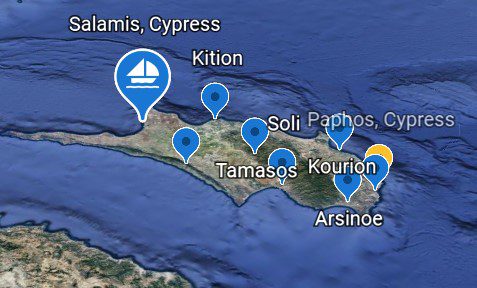
And from there we set sail [leeward] and sailed under the shelter of Cyprus [to the south of us] because the winds were against us.
And when we had sailed through the sea along the coast of Cilicia and Pamphylia, we landed at Myra in Lycia.
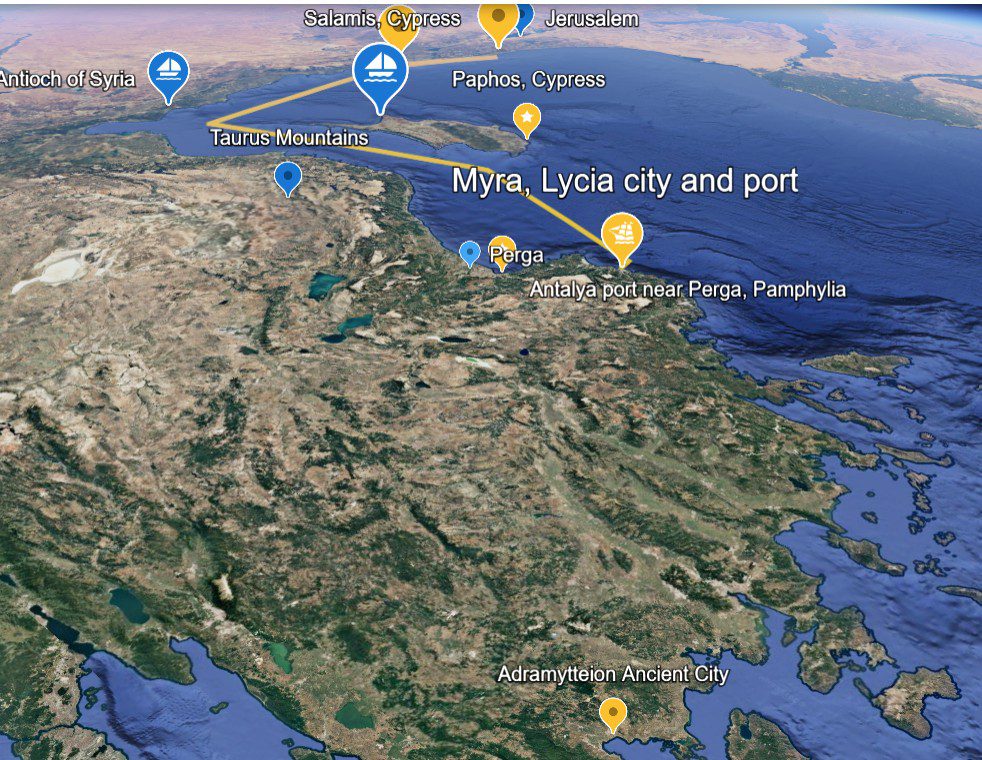
Finding a bigger ship in Myra
The Centurion Julius, probably knowing not only the Mediterranean ports and Roman administrators but also which ships sail further to Rome, will book passage on a larger ship capable of sailing into deeper waters to continue their long voyage.
To be continued...
